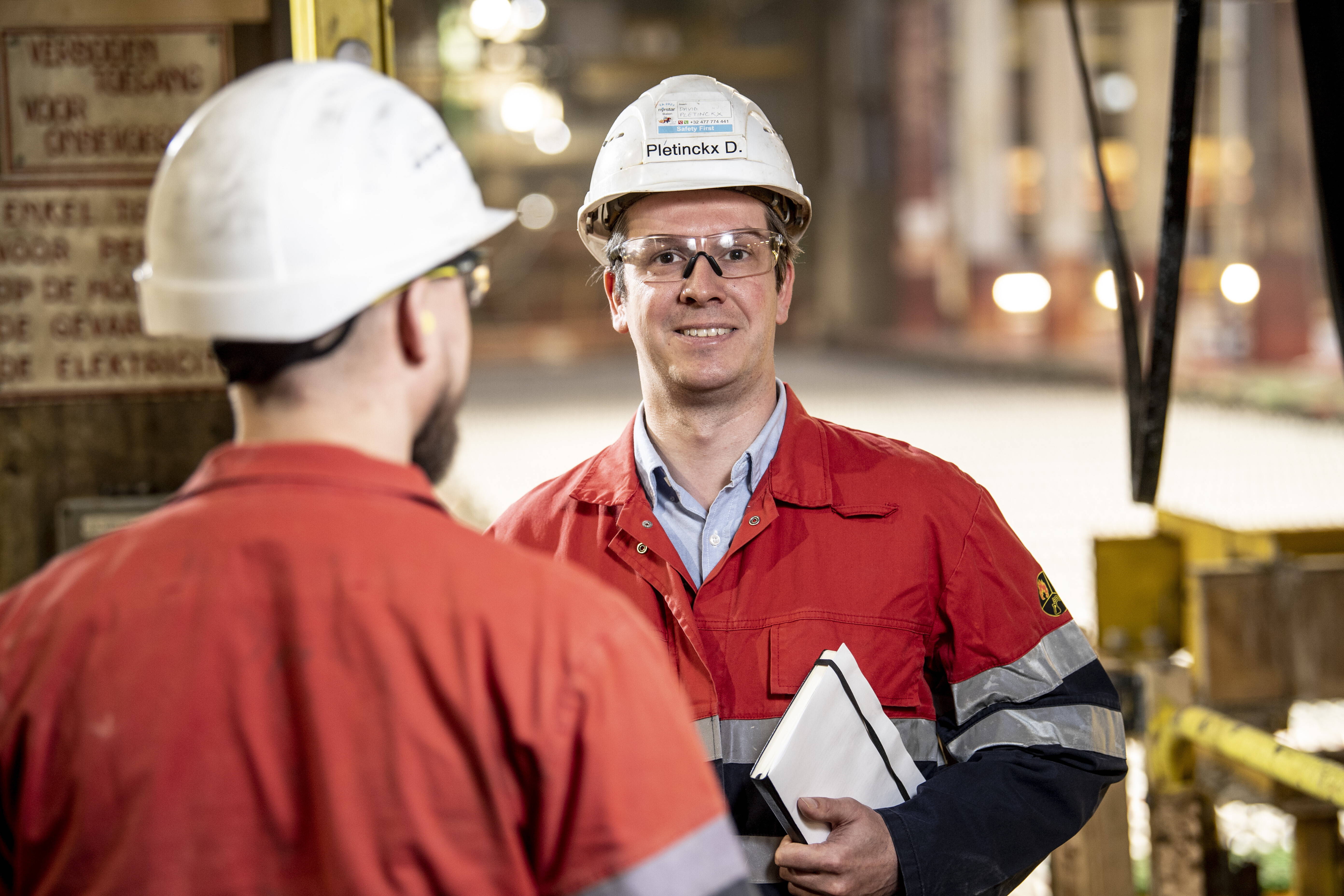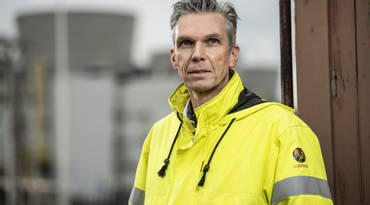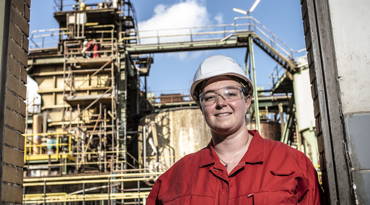‘We should be even more proud of Nyrstar, than we already are,’ says electrolysis hall superintendent David Pletinckx. ‘Many processes that are used across the world to produce zinc have been developed here.’

As a civil engineer in metallurgy, David Pletinckx started working as a process technologist in Nystar’s roasting department in Balen 10 years ago. Roasting is the first step in the zinc process.
‘There are three steps,’ Pletinckx explains. ‘After roasting, where the sulphur is removed from the zinc concentrate, it goes to leaching. In addition to zinc, the zinc oxide contains an extensive collection of other metals that are purified out during this process.’ Then it goes to the electrolysis hall, department head Pletinckx’s new playground.
‘Every now and then you want something new. So when they asked me if I’d like to make the switch, I immediately agreed,’ Pletinckx says about his new role. ‘In the roasting department I saw the ores arriving. Now I see the zinc leaving. This way I experience the beginning and end of the process.’
Like a fish in the water
As a passionate metallurgist, David Pletinckx feels like a fish in water on the Nyrstar site. ‘It’s part of Flanders’ industrial heritage.’
High energy prices challenge us to work more and more energy efficiently.
David Pletinckx,
superintendant, Nyrstar Balen electrolysis hall
Today Pletinckx is superintendant of the electrolysis hall at Nyrstar. This is the heart of the entire plant and the place where the zinc takes shape. ‘We use electrolysis to make zinc metal from the liquid that arrives in our hall,’ he summarises. ‘That requires lots of energy. The electrolysis hall consumes approximately as much energy as a medium-sized city like Leuven.’
People make the difference
Nyrstar is one of Belgium’s largest energy consumers. ‘But,’ says Pletinckx, ‘we always try to achieve the highest possible energy efficiency. ‘At this scale, energy efficiency lies in the details.’
For Pletinckx, the big difference lies in the people who work in the electrolysis hall. ‘Although it’s pretty automated here and this specific process step is not particularly labour intensive, the impact of our team is very high,’ he says. ‘In the electrolysis hall, for example, we constantly keep an eye on the electrical contacts and the electrolysis cells. The better they function, the more energy-efficient our zinc production is.’
It's all about experience, expertise and focus. And for Pletinckx, these cannot be replaced by computers. ‘A person’s impact on energy efficiency is much higher here than in an ordinary household. If you set up the washing machine at home to operate at night instead of during the day, this has a limited impact on energy consumption.’
Energy gains
In recent years, Nyrstar has focused heavily on sustainability. On and around the site is one of the country’s largest solar energy parks, and a project is under way to install a large lithium-ion battery. ‘This can store energy ready to use when it’s appropriate to do so. We also have various initiatives in the organisation to continuously raise our power efficiency to a higher level.’
It’s all about details, Pletinckx says. ‘We don’t want to invent a new type of electrolysis, but we are committed to perfecting all the details. These initiatives are becoming increasingly important, especially when you look at current energy prices. Something of which you would have said a few years ago that it’s useful, but not right now, will now take priority. Even the smallest energy gain has a huge economic impact today.’
Nyrstar's zinc smelters have an energy-efficient and flexible smelting process. If electricity prices are high, production can be reduced. ‘These prices hurt a company like Nyrstar because we use a particularly large amount of energy. But it’s also a challenge to do better and better.’
Even the smallest energy gain has a huge economic impact today.
David Pletinckx,
superintendant, Nyrstar Balen electrolysis hall


